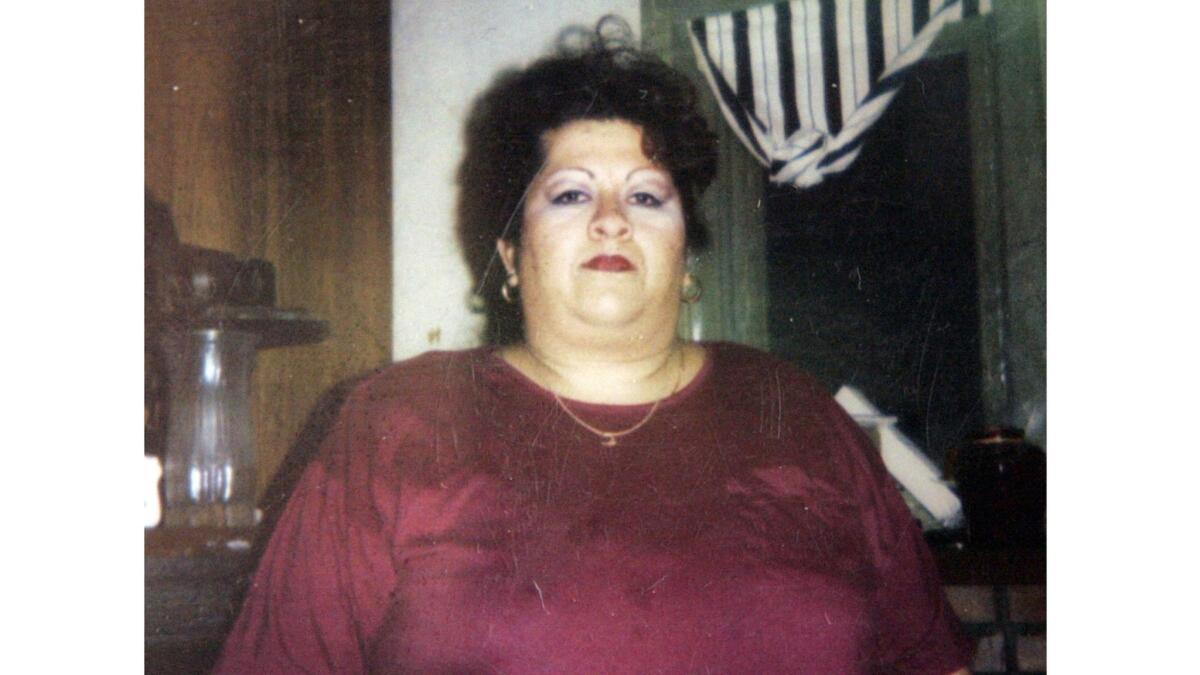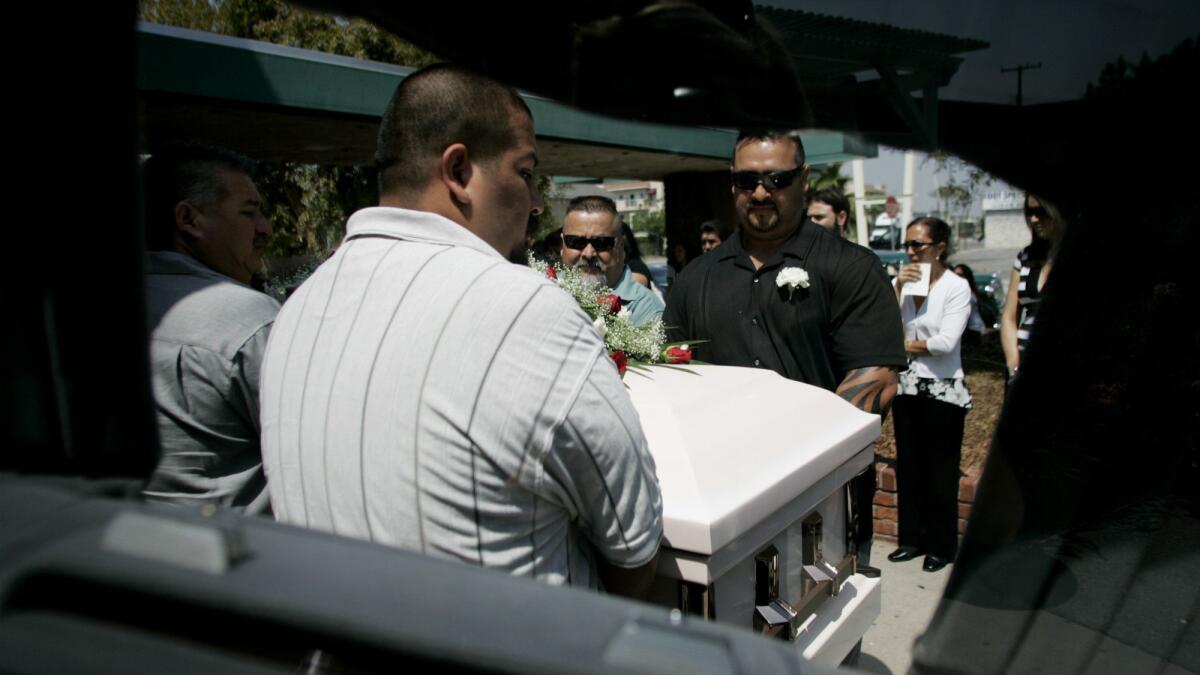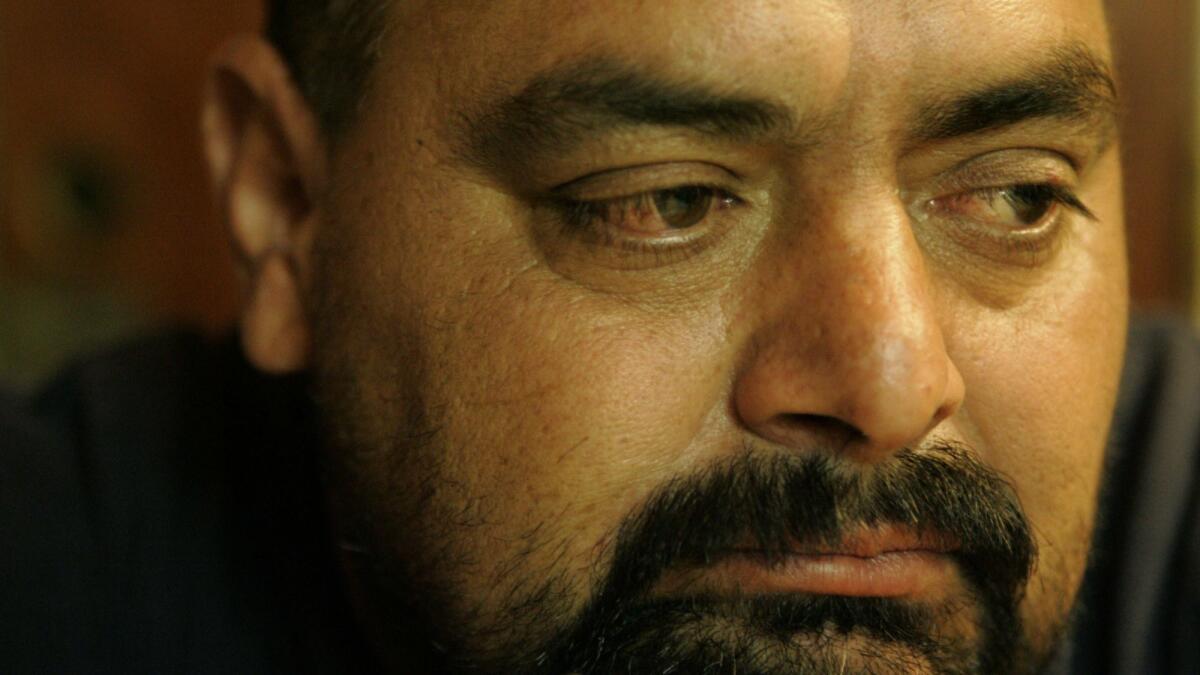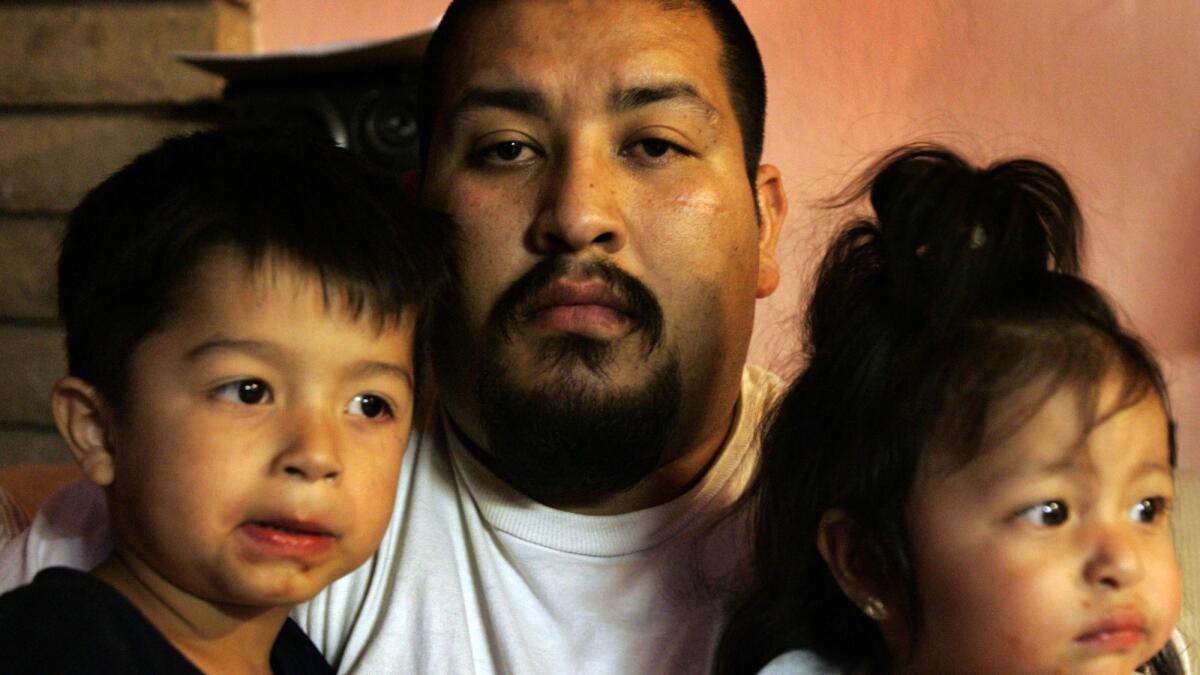From the archives:: Death at King-Harbor probed

- Share via
Authorities are investigating the death last week of a 43-year-old woman at Martin Luther King Jr.-Harbor Hospital and complaints from her family that hospital personnel did nothing as she writhed in pain on the floor of the emergency room lobby.
Edith Isabel Rodriguez died in the custody of Los Angeles County police, who had discovered she had violated her parole and were preparing to take her to jail.
The case has renewed questions about whether King-Harbor, the hospital formerly called King/Drew, has improved the care it provides to the poor and largely minority community it serves. The facility has slashed services and disciplined hundreds of staffers in the last 3 1/2 years as it tries to overcome a spate of scandals that caused it to lose its national accreditation and federal funding.
Among those investigating what happened — some of which was captured by the hospital’s video cameras — are county sheriff’s homicide investigators, the county coroner and the state Department of Health Services, which began an inspection of King-Harbor on Monday.
Officials from those agencies would say little about the incident, but family members said there was no doubt that what happened was wrong.

Rodriguez, who went by the nickname Chavela, had gone to King-Harbor on the morning of May 8 because of intense abdominal pain. Physicians there prescribed pain medication and released her that night, but relatives said Rodriguez was in so much pain that, instead of leaving, she and her boyfriend stayed on the benches in front of the hospital.
Her boyfriend, Jose Prado, went to get something to eat; when he returned an hour later, he found Rodriguez on the floor in the emergency room lobby in obvious pain. She said something inside her had popped. Prado begged hospital personnel to do something, relatives said. When no one did, Prado went outside and called 911 from a pay phone.
“Nobody wanted to help him,” said Marcela Sanchez, Rodriguez’s sister. “When he tapped on the windows to tell the nurses that she needed help and that she was on the floor, they didn’t want to pay attention to him.”
Because Prado was already at a hospital, relatives said, the 911 operator told him no one could be dispatched there.
He then knocked on the door of the county office of public safety, which provides security at the hospital. Prado said he told the officers that Rodriguez was bleeding from her mouth. A sergeant responded in Spanish, “That’s not blood. That’s chocolate,” Sanchez quoted Prado as saying. (Prado speaks only Spanish and Sanchez translated for him.)
Instead of going to Rodriguez’s aid, police ran her name through their computers. When an outstanding arrest warrant for a parole violation came up, they took her into custody, Prado said.
It was not immediately clear Monday why she had been on parole or how she had violated it.
As officers pushed Rodriguez in a wheelchair to a squad car so they could take her to the sheriff’s station, she became unresponsive.

Hospital personnel were not successful in their attempts to resuscitate her.
In the days before her death, Rodriguez had visited King-Harbor several times seeking treatment for severe abdominal pain. Physicians diagnosed gallstones. Each time, documents show, she was treated and released, sometimes with pain medication.
During her final visit, video cameras in the hospital show Rodriguez going from a wheelchair to the floor, according to people familiar with the video. The grainy images also show her wriggling on the floor. The video shows custodial staff cleaning up the floor after she got up.
A coroner’s official said that Rodriguez was a transient with a long history of illicit drug use. Family members said she had been putting her life back together.
Her son, Edmundo, said he believes hospital staff gave her less attention because “they thought she was just some woman off the streets with no family, no nothing.”
“She was laying on the ground,” he said. “Nobody there cared. They’re there and they’re numb to everything.”
The incident has once again brought the attention of top county officials to King-Harbor. In a rare move, the county’s chief administrative office has taken over the investigation from the Department of Health Services, which runs King-Harbor, and the office of public safety.
“I don’t know why she did not receive medical care,” said Sharon Harper, chief deputy in the chief administrative office.
“Rest assured,” she said, “we’re taking this seriously and we’re going to find out what happened, why it happened and who’s involved.”
Sheriff’s Capt. Ray Peavy said sheriff’s homicide detectives and a lieutenant attended Rodriguez’s autopsy over the weekend. Results are pending, the coroner’s office said.
The Sheriff’s Department, as a matter of policy, investigates any in-custody death or officer-involved shooting in the county, if requested by the local police agency, Peavy said.
“I got a call last week asking that we immediately pick up this case and look into it,” Peavy said. “So I immediately assigned a lieutenant and a team of detectives to it.”
Craig Harvey, coroner’s office chief of investigations, said the initial report to his agency said a woman walked into the emergency room, collapsed and died. Only days later, after The Times began inquiring, did the coroner learn that Rodriguez died in custody.
“Whether they felt it was irrelevant or whether they were intentionally holding it back, I can’t say,” Harvey said.
The county Board of Supervisors will discuss the matter in closed session today, said Joel Bellman, a spokesman for Supervisor Zev Yaroslavsky.
Supervisor Yvonne Brathwaite Burke, whose district includes the hospital, said she was concerned about the incident. But Burke said she had not heard all of the allegations made by Rodriguez’s family and did not know if they were correct.

“Obviously, if someone is sick, they should be treated,” Burke said. “She would absolutely be entitled to receive medical care.... I think we all need to find out the truth.”
King-Harbor has been in the news since 2003 because of repeated instances in which patients have died under questionable circumstances. It was required to close its trauma center and shut its programs to train aspiring physician specialists.
The hospital’s management now is overseen by Harbor-UCLA Medical Center, a county hospital near Torrance whose care has been lauded.
If King-Harbor cannot regain federal funding later this year, it could be closed because it would be too expensive for the county alone to operate.
Edmundo Rodriguez said family members met with King-Harbor’s medical director, Dr. Roger Peeks, the day Edith Rodriguez died to discuss what happened. “Dr. Peeks told me what was done was not right,” he said.
Peeks did not respond to a request for comment left with the county health department.
The son said that when family members asked why the staff focused on her criminal history instead of her critical medical condition, the doctor apologized and said it was unprofessional.
Times staff writer Stuart Pfeifer contributed to this report.
More to Read
Sign up for Essential California
The most important California stories and recommendations in your inbox every morning.
You may occasionally receive promotional content from the Los Angeles Times.













